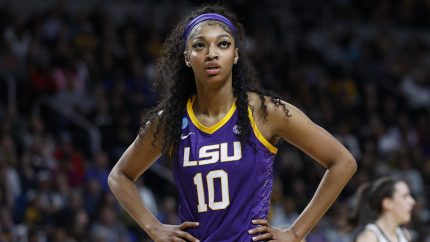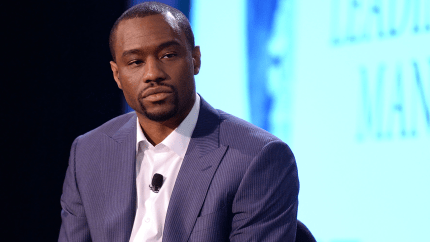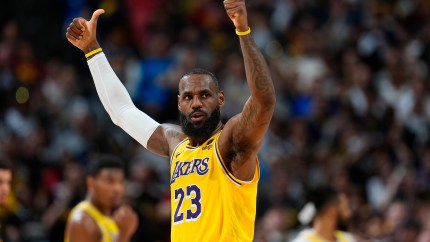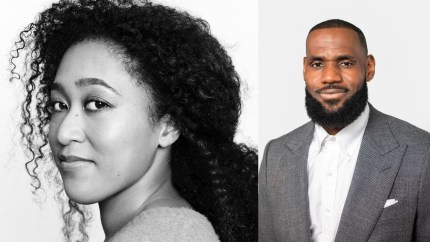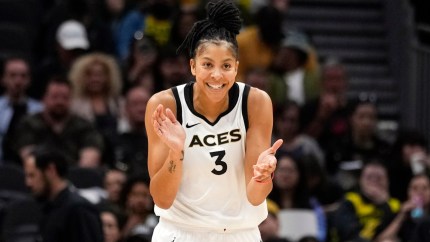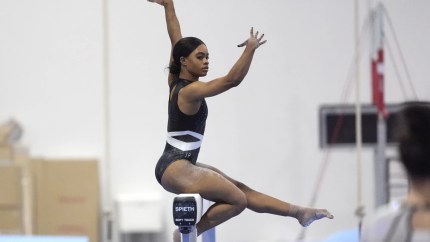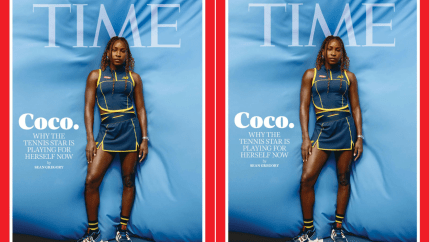Ben Bolch’s LA Times column on LSU is the latest example of how legacy media perpetuates misogynoir
OPINION: The LA Times claims Bolch’s column failed to meet its editorial standards, yet somehow it still got published.

Editor’s note: The following article is an op-ed, and the views expressed are the author’s own. Read more opinions on theGrio.
In journalism school, we are taught that we need to be objective in our reporting and writing.
I could go into a long tangent about how objectivity in journalism is a myth created by gatekeepers in legacy media who wanted to control both the stories that were told and how those stories got told.
The whole point of “objectivity” in journalism was to not offend the main readers of news, who were and still are white men. Features sections were later added for white women, but at no point were Black people or our stories considered in legacy media or the entire objectivity debate. White men and white women have always been the target audience, and it’s still that way now.
This means that the way stories get told about Black people was historically told through a lens that satisfied the sensibilities of white people.
New media – or the media spaces that have been created since the advent of the internet — changed all of that.
With more and more Black publications and outlets entering the arena and telling our stories in a way that honors us and uplifts our stories specifically, legacy media has not had the same level of control over what is considered “objective.”
In this day and age, who you are as a person is directly reflected in the way you write your stories and the stories you choose to write.
Opinion writing is not objective; it is, in fact, the exact opposite. It’s subjective AF.
Opinion writing is a subset of journalism in which journalists, commentators, critics, etc. share their personal thoughts on the topic of their choosing.
Those topics can be movies, current events, albums, politics, racial justice issues, social justice issues and the list goes on.
The writing in opinion pieces is a bit looser than the writing you see in reported pieces. Op-eds tend to lean more into the way a writer personally expresses themselves. They may use slang or jargon that may not otherwise appear in regular news pieces, and their personality tends to come out more in the writing because, again, it is an expression of their deep, personal thoughts.
Taking all of that into consideration, let’s talk about Ben Bolch’s op-ed that was published in the L.A. Times prior to the UCLA-LSU matchup in the NCAA Women’s Basketball Tournament.
Ben Bolch is a beat writer for the Times who covers UCLA. His Twitter (remember, we never call it X) bio says he’s “an absurdist who tweets for me, not you.”
Ben wrote a commentary last Friday in advance of last Saturday’s matchup between the two teams. The headline on the article was “UCLA-LSU is America’s Sweethearts vs. its basketball villains,” and honestly, that should have been our first clue that the article was going to be full of the same type of anti-Black, dehumanizing rhetoric that has been lobbed at LSU over and over again for the past year.
The original lede in the column said, “This isn’t just a basketball game, it’s a reckoning. Picking sides goes well beyond school allegiance. Do you prefer America’s sweethearts or its dirty debutantes? Milk and cookies or Louisiana hot sauce?”
Setting aside the fact that those first two independent clauses should be separated either by a semicolon or a period, what in the “white people get on my nerves sometimes” is this?
Who calls UCLA’s women’s basketball team “America’s sweethearts”?
No offense to those young ladies because I am sure they are all very lovely human beings, but how are you presenting them as the light in this equation while presenting LSU – the Black team for the purposes of this exercise — as the dark?
He then writes “Do you prefer the team who wants to grow women’s basketball or the one seemingly hellbent on dividing it?”
Again, where is this narrative coming from?
LSU’s roster is predominantly Black, so painting them as the “evil” opposition to UCLA’s “good” team is more than a little troubling, but he doesn’t stop there.
He makes Angel Reese, who has suffered under so much scrutiny and criticism by the white legacy media for doing the same thing all basketball players – including Caitlin Clark, who is white – do all the time.
Mulkey’s best player also can’t get out of her own way. A year after she taunted Caitlin Clark by giving the Iowa superstar the ring finger and mocking Clark’s hand-waving gesture late in the national championship game, Angel Reese is at it again. When Middle Tennessee’s Anastasiia Boldyreva fouled out of a second-round loss to LSU, Reese waved goodbye as a crying Boldyreva headed to the bench.
How is what Angel Reese is doing any different than Steph Curry’s “night night” gesture?
The commentary in the article was misogynistic, sexist and anti-Black toward a group of young women who are still learning, growing and deserve all the grace in the world as they try to balance the enormity of sports celebrity and college life. They are navigating in a space where they are expected to be athletic and dominant in their sport but also the epitome of grace and politeness if white people have anything to say about it.
Sports
The backlash against Bolch’s commentary was swift and immediate. People on Twitter called him out repeatedly, and ultimately, the Times updated the article on Saturday and added several disclaimers to it, including the following editor’s note:
The original version of this commentary did not meet Times editorial standards. It has been edited to remove language that was inappropriate and offensive. We apologize to the LSU basketball program and to our readers. On Monday, Ben Bolch offered an apology, which is appended to the bottom of this commentary.
In the lede, the line “Do you prefer America’s sweethearts or its dirty debutantes? Milk and cookies or Louisiana hot sauce?” was removed and replaced with a second editor’s note that said “A previous version of this commentary did not meet Times editorial standards. It has been updated.”
This article presumably went through at least a line editor and a copy editor, and neither of them saw a problem with it originally, so I question what editorial standards the Times is referring to, and I wonder if all of their editors are trained on this alleged “standard.”
The line “Do you prefer the team that wants to grow women’s basketball or the one seemingly hellbent on dividing it?” still remains in the article, as does the aforementioned commentary on Angel Reese.
Now, let’s go back to what I said at the top of this commentary.
Ben Bolch is a veteran opinion writer who has been with the Times since 1999. In those 25 years, he has had time to practice and hone his craft, which includes things such as his writing style as well as his word choice.
I’m going to assume Ben Bolch knew what he was doing when he wrote this article. He is a white man covering a predominantly white school, and he knows his audience. That commentary was written in a way that appeals to the sensibilities of his audience, but it was also written with words and phrases he intentionally chose.
And again, an editor saw that story and thought it was perfectly OK to run it.
Ben himself likely thought he did his big one with it because he couldn’t stop promoting it on Twitter, even after being repeatedly called out on Twitter for it.
He finally issued a lame “apology” on Monday, but the damage had already been done. The apology has since been appended to the end of the original article, but I will save you the time and the energy of reading but summing it up thusly:
Ben Bolch isn’t sorry for the language he used against those young women on the LSU team. He’s sorry he got called out for it so loudly and openly.
Words matter. As a journalist, no one should know this more than me. Yet I have failed miserably in my choice of words. In my column previewing the LSU-UCLA women’s basketball game, I tried to be clever in my phrasing about one team’s attitude, using alliteration while not understanding the deeply offensive connotation or associations. I also used metaphors that were not appropriate. Our society has had to deal with so many layers of misogyny, racism and negativity that I can now see why the words I used were wrong. It was not my intent to be hurtful, but I now understand that I terribly missed the mark.
The bolded emphasis is my own.
You can’t tell me at his big age and at this stage of the game in his career, especially after all the white “woke” nonsense of 2020 that he truly didn’t understand the gravity of what he was writing. He doesn’t just now see it; he knew all along, and when his editor(s) went along with it, he figured he had gotten away with it.
It’s the journalistic equivalent of throwing a rock and hiding your hand.
You ain’t slick, Ben.
What Ben did was follow the path paved by all of the white legacy media that came before him.
It’s OK to talk down to or about Black people in their eyes. It’s OK to paint us as villains and thugs and horrible people for doing the same things they do all the time and never get called out for. It’s OK to weaponize words against an entire group of young Black women who aren’t doing anything more than playing their sport and trying to grow in the world.
White legacy media perpetuates misogynoir. We’ve seen this happen in real time with athletes like Serena Williams and Coco Gauff, among others.
Ben Bolch was just following the script that was already written for him. He said things about Black women athletes that he would never say about white ones, and if you don’t believe me, take a look at his later commentary about UCLA losing. He wrote that story as gently as possible, even as he criticized the many mistakes they made that ultimately led to them losing the game.
White legacy media perpetuates misogynoir all the time.
They should be prepared for Black writers (and Black people in general) to call it out on a regular basis.
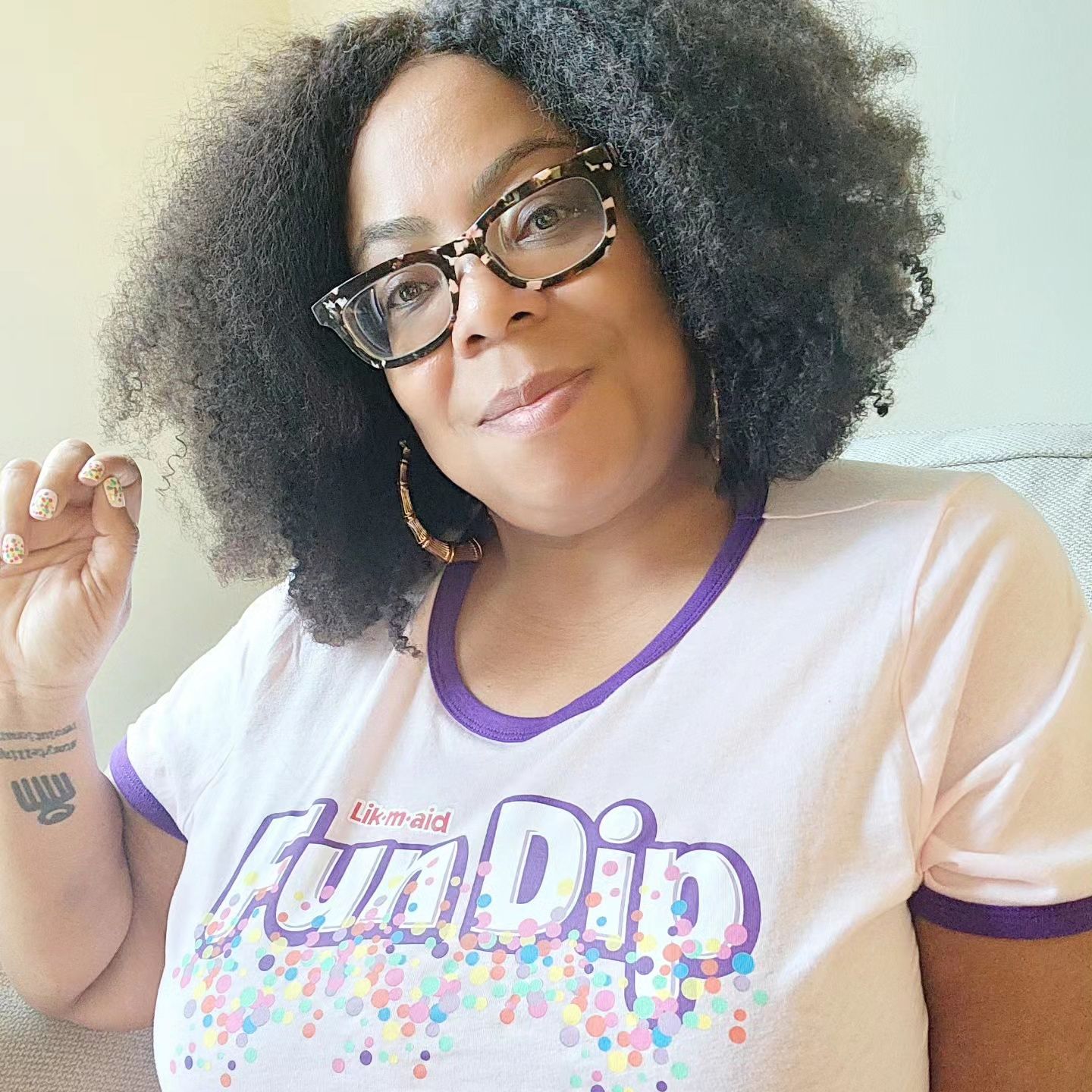
Monique Judge is a storyteller, content creator and writer living in Los Angeles. She is a word nerd who is a fan of the Oxford comma, spends way too much time on Twitter, and has more graphic t-shirts than you. Follow her on Twitter @thejournalista or check her out at moniquejudge.com.
Never miss a beat: Get our daily stories straight to your inbox with theGrio’s newsletter.
